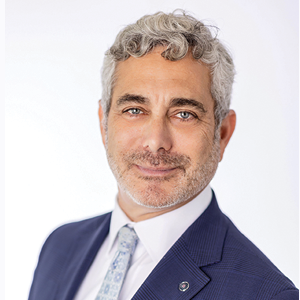Contacted by Child Protective Services? Here is What You Need to Know.
Have you been accused of hitting your son? Have you been accused of sexually abusing your girlfriend’s daughter? These are some of the reasons you could be contacted by Child Protective Services (CPS) or be visited by a social worker. CPS is a part of the Department of Social Services (DSS) that investigates allegations of child neglect and child abuse. Once a claim of neglect or abuse is sent to CPS, they are required to investigate the claim. Certain laws (Md. Annotated Code, Family Law Sec. 5-704) require professionals (e.g., doctors, nurses, police officers, teachers) to report suspected instances of child abuse or neglect. However, anyone can contact CPS and file a report of abuse or neglect.
 What Happens Next?
What Happens Next?
A CPS/DSS agent will start to investigate an alleged physical or sexual abuse within 24 hours of the reporting. They will observe the child, conduct an onsite interview with the child's caretaker, and decide if the child is safe. If the agent determines the child is not safe, they may immediately remove the child from the home. If the report is for suspected neglect, CPS will follow the same process within five days after receiving the report. (Md. Annotated Code, Family Law, Sec. 5-706)
At the conclusion of a CPS investigation, the agency must make a determination as to the allegation and send you a written notice of their finding. Findings can range from the abuse being indicated to the abuse being ruled out. Additionally, CPS can find that the abuse is unsubstantiated, which means there is not enough evidence to verify if the abuse is present. If CPS makes a finding of indicted or unsubstantiated child abuse or neglect, you have the right to appeal the finding to the Office of Administrative Hearings (OAH) within 60 days of receipt of the DSS/CPS finding (COMAR 28.02.01/COMAR 07.02.26)
However, if you have a pending criminal matter related to a child abuse or neglect allegation, and you request an appeal of that finding, the appeal hearing will be put on hold (stayed) until after your criminal case is finished (COMAR 07.02.26.06). It is essential to understand the close relationship between the police and CPS; and how an attorney can assist you.
Law Enforcement and CPS Work Side-by-Side
There is a standard process that occurs when CPS contacts you about an investigation. You should assume that the police are involved from the time CPS first reaches out to you. While a police officer may or may not be present when the CPS agent calls or comes to visit you, CPS will share the information they obtain with law enforcement. Moreover, it not uncommon to have law enforcement present for parts of the CPS investigation (e.g., interviews, home visits, telephone calls). Evidence collected by a CPS agent for their investigation may be, and is almost always, used against you in a criminal case.
An Attorney Can Represent You Throughout This Process
When CPS first contacts you, you have the right to hire an attorney. Before speaking with a CPS agent, you should consult with an attorney. If the decision is made to speak with CPS (after consulting your attorney) then your attorney should be present when these interviews are conducted. It is common for CPS workers to attempt to persuade you not to hire an attorney. Often the social worker will say to you that an attorney "will only complicate things" or "is not necessary for CPS investigations." This is not true. Given the close relationship between CPS and law enforcement, it is crucial that you hire an attorney before speaking to anyone to ensure your rights are protected.
The CPS investigation is generally a long process—a marathon, not a sprint. Many clients damage their case before contacting us, so the sooner you retain legal counsel, the better your position is likely to be in the long term.
If CPS contacts you, call Craig M. Kadish & Associates today. We are available 24 hours a day, 7 days a week; we are here to help.


